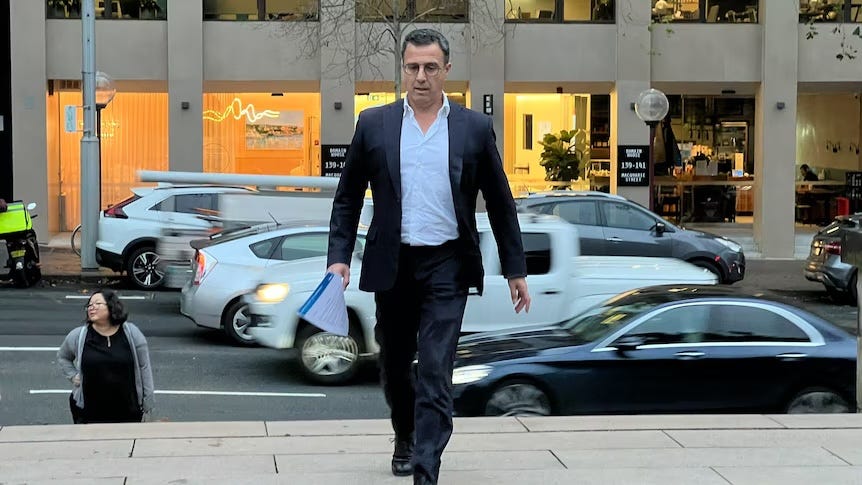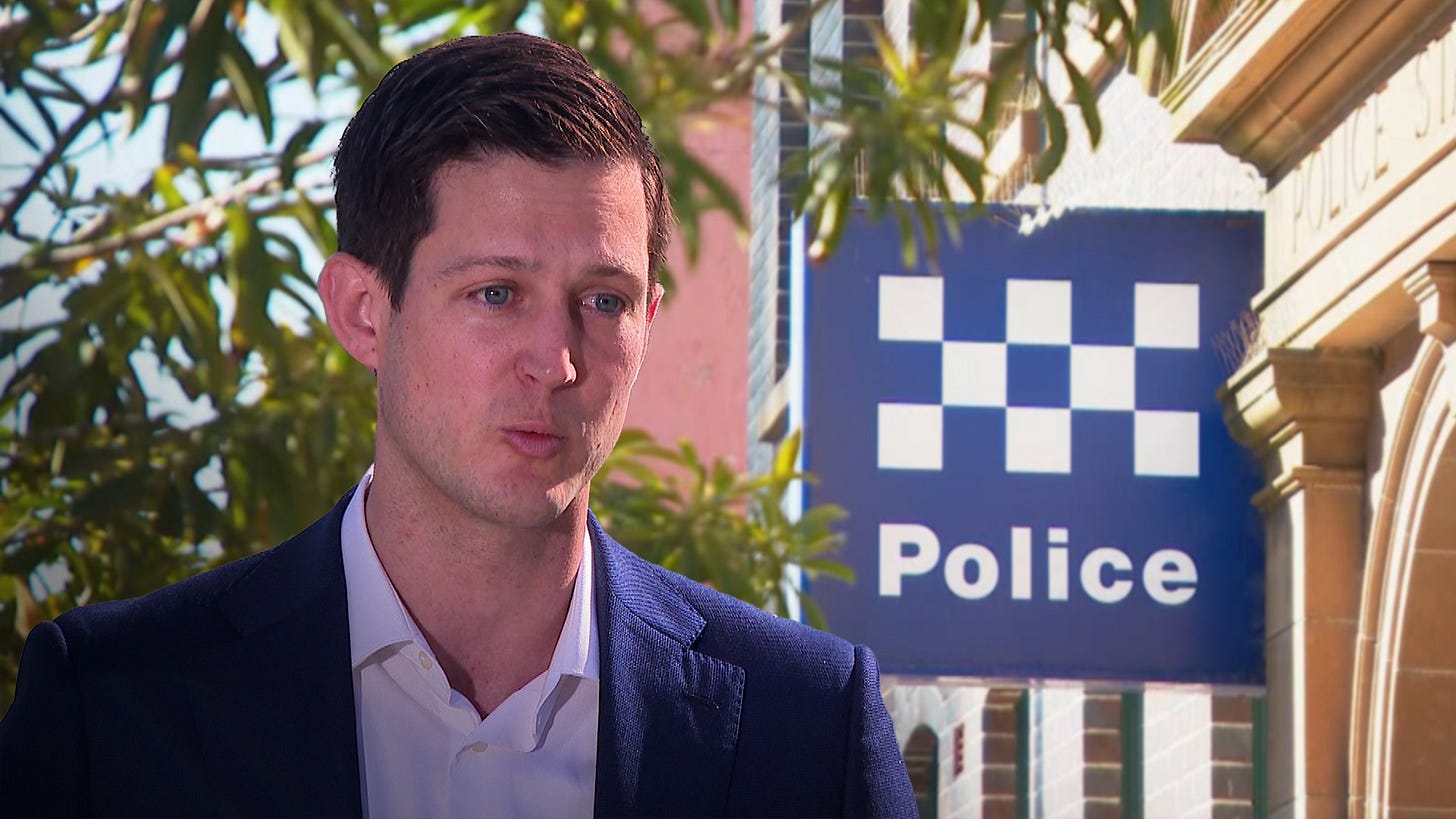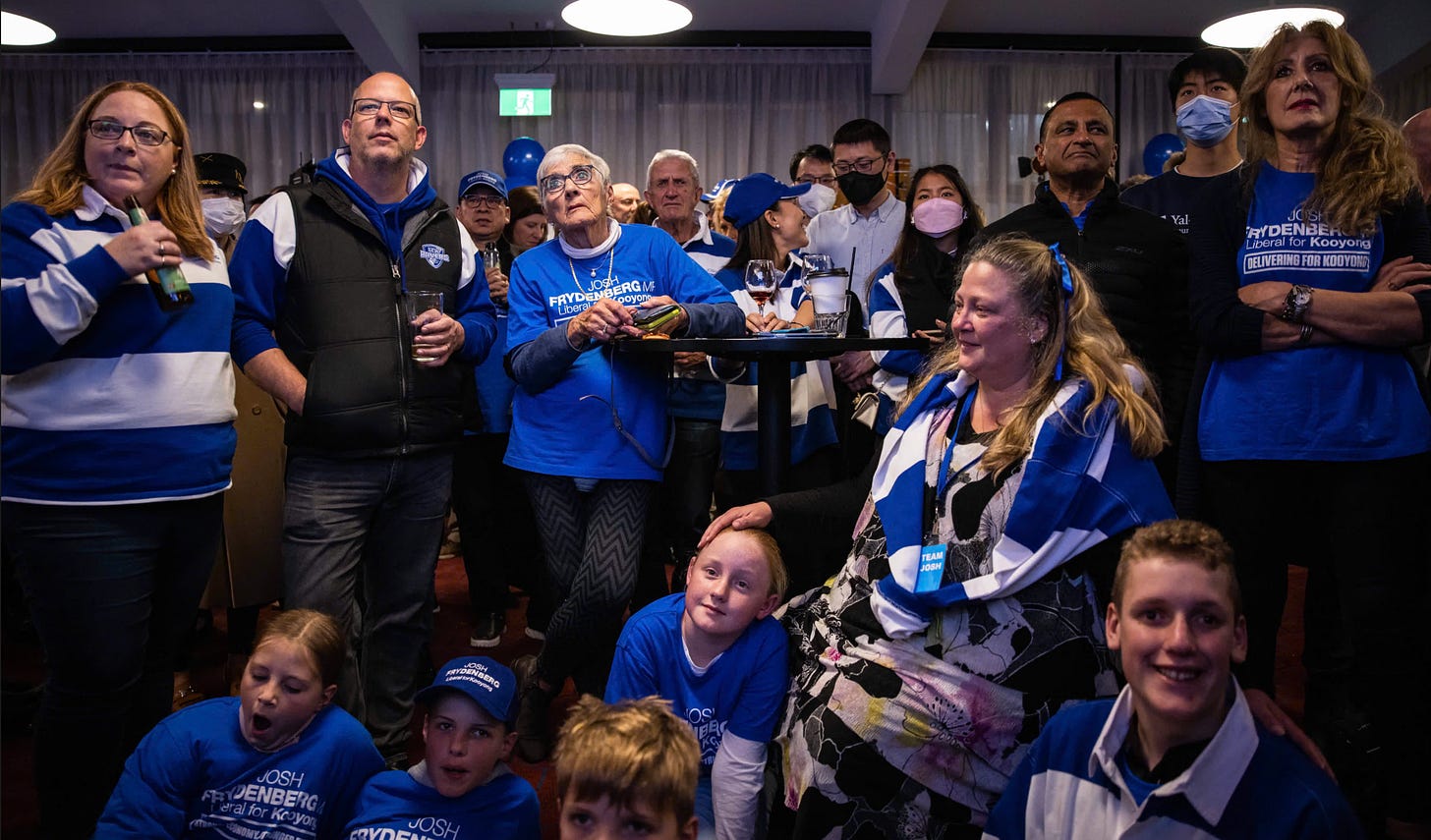Written by anonymous Liberal Party insider, Bob Stone
When I was first asked to write about the state of the Liberal Party, I wondered how best to weave together the divergent problems of the party. Unlike Labor, who’s factions helpfully put up public websites and whose operatives all have Linkedin pages, the Liberals prefer to keep things behind closed doors. Go to enough events and talk to enough old heads and they’ll lay the state of the party out for you (usually in between rambling political philosophy lectures and bad-mouthing their rivals) but for opening this esoteric world of Totti’s bar drinks and door-knocking conversations to the layman (at least in a way that doesn’t dox anyone) was a tricky endeavour. Thankfully the past month has seen all these issues laid bare as factional conflict and backbiting spilled out into the public sphere. Thus I present to you The Good The Bad and The Ugly of the current Liberal Party. (In reverse order)
The Ugly
The big news of the last month is obviously the NSW council debacle. In short, the State Director (effectively CEO) of the Libs Richard Shield was given a week to sign off on the nomination forms of various Liberal councillors. He failed to do so before the deadline for nominations closed, and this resulted in hundreds of councillors - many of whom had already started campaigning - not being endorsed and several councils with no Liberals endorsed at all. All this at a time when the state party was making a big push to see more councillors elected to build its grassroots base.
Subsequent to this was the revelation that the then MLA for Pittwater Rory Amon, at the time touted as an up-and-coming leader, was being charged for the sexual abuse of a minor. Allegations of the crime were being investigated since before his nomination yet weren’t picked up at all by The NRC (the committee in charge of vetting candidates). While slip-ups will happen in any elections, someone like Amon who has multiple charges against them, had been active in the Young Liberal for years, and was running for a blue-ribbon seat should have been caught out. The fact that he wasn’t has far more to do with his factional alignment and friendships with the members of his NRC than with any great stealth on his part.
Both of these cases highlight a key failing of the modern Liberal Party, namely the complete failure of its internal party processes. While the history of the NSW factions would need its own piece the long and short of it is that activists would rile up the party base to implement conservative policy, while enlightened moderates would manipulate the party machinery to block them. This battle has left its scars, many of the party branches only exist on paper or are filled with ethnic stacks and family members, while at the same time, the party machine has completely switched from fighting Labor to fighting The Right.
The Bad
The Liberal Party is not an ideological party and never has been. Robert Menzies was not an ideologue and did not conceive of his party in those terms, indeed historically ideology has been associated with the fanatical leftism of Labor (Judith Brett’s book the liberals and the moral middle class has a good chapter on this). The Liberals were born as a class-based sectional party. Menzies’ Forgotten People were not bound by a coherent philosophy but from a worldview born of shared economic and social concerns. The party did not distinguish itself from Labor by its ideological views but through institutions like the free vote, trusting in its members’ private judgement to produce policy rather than ideological rote.
This may have worked for Menzies but in an era where class politics are dead, it has left the Liberal party with no firm legs to stand on except opposition to Labor. While this has made the Liberals the home of the mainstream right since the Howard years, it has always been an unhappy home. With no strong ideological commitments, the Liberals have become the home of failed sons and social strivers. People less concerned with political victory than with their own career advancement. Being unable to gain positions on merit they are reliant on the patronage of their bosses, and in turn will ruthlessly destroy anyone who threatens to upset their cushy lifestyle.
The Good
The past month has not been all bad news though. The coalition has returned to power on the mainland with a landslide win in the NT election, while the LNP looks set to win in QLD. Dutton has also shown himself to be surprisingly aware as opposition leader. While he doesn’t have the same pool of talent or energy Abbott did for the rapid comeback of 2010, Dutton has put in a lot of work positioning the party for long-term success. While Dutton is not secretly based or /ourguy/, his dragging the party into an effective conservative campaigning organisation will create opportunities for the real right to get some of what we want, especially on the immigration issue.
The two key areas of policy Dutton has pursued are Immigration reform (reform is code for abolition in auspol parlance) and Nuclear energy. Dutton is aware that victory in NT and QLD is the result of the massive youth (aboriginal) crime waves, and the subsequent failure of Labor to respond. Videos of kids stealing cars and beating up granny’s never play well, and helped play a large role in killing off The Voice. Their popularity on social media has spooked the Albanese government enough to get them to crack down hard using the online safety commission. This is creating an opening for Dutton to begin rebuilding after the Morrison years. While I don’t think I need to tell you about the benefits of immigration reform, its metapolitical opportunity is less obvious. Limiting immigration deals both of the Liberal’s strongest attacks at the same time. Firstly, it would greatly reduce cost of living pressures, especially around housing, food and wages. Secondly, it represents an evolution of the pre-2020 culture war issues around identity and crime. The other element of Dutton’s opposition program is his support for nuclear. Whatever you may think about the potential of nuclear vs coal power, Dutton has effectively neutralised the climate cultist attacks that do still play well among bourgeoisie Australia. Secondly, his support for a government-owned and funded program shows his prescience and ability to see beyond the mere market worship that blinds so many libs.
Dutton’s decision to federally intervene in NSW is also a big deal. It stands as a demonstration that he’s not only interested in putting the party on a firm foot policy-wise but also organisationally. An independent party apparatus not only allows for solid right-wing MPs to be preselected without interference but would go a long way to fixing the structural rot that infests HQ. For the enterprising young conservative there has never been a better time to join the Libs. Right-wingers look set to snatch up safe seats and start hiring staff, while HQ will need to start finding dedicated and capable campaigners. These skills aren’t hard to acquire and can put you in a position of massive influence, you just have to get involved.






As an insider I would say that Labor does a very good job at appearing public, but is quite far from it in reality. I've heard many personal beliefs of elected members that would shock regular Labor voters and branch members. The goals and alliances are much more complex than even factional and sub-factional lines.
Further, the idea that Labor is super ideological is also a little misplaced. While generally aligned on low stakes items such as protecting renters etc., the promotion of "strong Labor values" effectively sums up to "Liberal bad" more often than not. As per usual there is little cohesion on the left, e.g., there are open secret anti-gay groups of muslims within the "far-left" factions who work with Rainbow Labor colleagues.
Overall a really good article.
After the shit-show that was the referendum, and as a supporter of nuclear, I wish you good luck in the next federal election.
What do you say to conservatives that consider joining the Liberals, but have seen the failures of the VIC Liberals, and the pushing out of actual traditional conservatives? Down here in VIC, I’ve heard from people in the Libs camp, that have watched the party push out proper conservatives; more publicly known recently such as Bernie Finn, Moira Deeming, and up north Gerard Rennick, and others in the past like Craig Kelly.